 Your new post is loading...
 Your new post is loading...
When this book author went on the Fox News Channel, he encountered a biased anchor. He handled it so well, his book soared to #1 on Amazon's bestseller list.
I’ve seen a lot of biased, ill-informed, and journalistically lazy interviews through the years, and this one was one of the worst. But the author who was the target of the anchor’s ire stood up to her questions well—and, in part due to his deft handling of that interview, currently has Amazon’s top-selling book.
Writer Reza Aslan—a prolific author who holds a Ph.D. in the sociology of religion—appeared on the Fox News Channel to discuss his new book, Zealot: The Life and Times of Jesus of Nazareth. Fox News anchor Lauren Green went into the interview clearly skeptical of the book—less for its content, about which she was clearly unfamiliar—but because Aslan is Muslim. And a Muslim writing about Jesus was just too much for her to take....
In his brilliant pitch for Kodak's slide machine, Mad Men's Don Draper teaches you an important lesson about how to speak about your product, cause or idea.
In one of its final reports before being pulled off the air, NBCs Rock Center committed a sin in an interview with a Rabbi.
...For us -- the larger teaching point here is no matter the explanation -- you should always protect yourself if you are going into an interview that could in any way be controversial or contentious. We teach our clients that it is kosher to tell the media that they too will be making audio -- or preferably video recordings of every interview.
Armed with that kind of backup -- if you are taken out of context or misrepresented -- you can, as Rabbi Berkowitz did -- correct the record.
In Washington-speak, a "full Ginsburg" is when one person appears on all five major Sunday news programs in a single day. The feat was first performed in 1998 by William Ginsburg , the attorney for Monica Lewinsky. Since then, the trick has been performed about 18 times -- often by Presidential candidates.
If you are not running for office --and you are doing a Ginsburg, chances are you are running for your life. Even if one or two of the interviews is pre-taped, it is hard on a person to keep their energy up and their talking points down.
White House Communications Director Dan Pfeiffer logged a full Ginsburg this morning. We'll leave to others to rate the substance of his answers -- but the way they were delivered was not impressive....
People will forget much of what you say during an interview. So be careful not to do these three things - or your audiences might remember even less. ...The “U” in CUBE A demands that your messages remain unburdened by three things: wordiness, jargon, and abstractions. The more a message tries to say—and the more abstractly it tries to say it—the less likely it is to be memorable. As a general guide, aim for messages that: have no more than two commas; contain no more than 30 words; and evoke concrete images....
Many journalists are willing to share the basics about the stories they’re working on, and any insight they offer will help you better prepare. I mentioned that you shouldn’t conduct an interview the moment reporters call. Instead, I advised that you should offer to return their calls promptly, and for you to take at least a few minutes to prepare for the interview before you speak. But before you hang up from that initial phone call, take a few minutes to “interview” the reporter. Many journalists are willing to share the basics about the stories they’re working on, and any insight they offer will help you better prepare....
During my first reporting shift at CNN in 1999, I was invited into a “question” meeting with Wolf Blitzer and his executive producer.
The three of us sat around for 15 minutes, coming up with questions for former Vice President Dan Quayle, who was mounting a bid for the 2000 GOP nomination.
We developed a seemingly impressive list of questions, but I noticed that the questions all fit inside certain categories. For instance, some questions were intended to be “stumpers,” while others called for speculation.
That taught me an important lesson. Spokespersons don’t need to prepare for every possible question. They just need to prepare for every type of question. Below, you’ll find six types of questions reporters always seem to ask—and how to answer them with ease....
Press conferences can play an essential role in media communications, particularly for major news announcements, in political campaigns, and during crises.... Press conferences can be tricky, since reporters from competitive news organizations often play a game of one-upmanship to see who can ask the most difficult question. For that reason, press conferences—especially those about controversial or challenging topics—require a deft spokesperson. Ask yourself whether a press conference is truly the best way to release information before scheduling one. If you decide to proceed with a press conference, here are four rules to remember...
When journalists choose experts, star power matters. Scientific research into the relationship between journalists and experts.... ... What’s interesting to see is how journalists choose the experts they call. In more than 90 % of the cases, it’s the journalist who initiates the contact – this is based on reporting by both the experts and the journalists. Only a small amount of the contacts is based on a press release by the expert. (Note: this is probably due to the fact that Albaek surveyed scientists, who as a whole are not very PR savvy. I think the numbers would look different had he included experts in different fields.) Still: overwhelmingly, the media set the agenda. An even more striking conclusion is the answer to the question: how did the journalist choose the expert? Albaek writes: “When journalists contact researchers, a Matthew effect comes into play: researchers who have been used extensively in the past are simply used further.”...
CEO gaffes never cease to amaze and recently former Groupon CEO Andrew Mason had us scratching our heads when he compared his leadership to Battletoads.... At GroundFloor Media, we recommend that executive clients focus on knowing a few topics really well outside of their core day-to-day business, rather than trying to be an expert on everything. Doing so, positions c-level leaders as the real experts in key topic areas and provides guideposts for public comment. The media and other industry stakeholders will come to know these leaders as a go-to resource on specific issues and won’t necessarily expect them to stray from that expertise. Creating this framework and designated expertise is foundational to any executive visibility and reputation management program. For executives such as Groupon’s Mason, who may be over eager to discuss any topic that comes his way, it provides a framework to reign in their comments and stay on topic. And for executives at the other end of the continuum who might be hesitant to make themselves available to the media or public, it provides a platform for them to shine, limiting the risk of uncomfortable topics or difficult questions....
According to Howard Gardner, a professor at Harvard University, “Stories are the single most powerful weapon in a leader’s rhetorical arsenal.” Yet most people struggle to think of compelling stories that reinforce their messages. That’s usually because they’re trying to think of a “big” story. In order to help people get unstuck, I tell them to think smaller. I encourage them to think of a single customer whose life was improved because of their product or a community that is enjoying the benefits of a new public school. A story can be many things: your personal experience with a person, place, thing, or topic; somebody else’s experience; case studies in the news; or a historical or fictional example....
It's a tough paradox. If you don't respond to a crisis, you'll look bad. If you do, you may make more people aware of it. So what should you do? If your organization is in the midst of a giant, well-publicized media crisis, you can safely assume that most people have heard about it. Therefore, you don’t have to worry about your response widening awareness of the crisis. Since the public already knows about it, you’re not going to make them aware of the incident for the first time simply by responding to it. But what happens if your organization is in the middle of a “mini crisis,” one which is only known to a specific audience or is confined to a specific news outlet or medium? A reader named Nicole recently asked the following question: “Do you (or others) have any thoughts about how to carefully refute a negative story without directing a new audience to it? For example, if you decide to communicate to your audience via social media or a company website or blog, are you inspiring those who may have not seen the original negative story to seek it out?” I reached out to a couple of my PR peers for help in answering her question....
Let’s say you’re a hedge fund manager. You know that many people in the public—even though they don’t fully understand what hedge funds are—hate your work. Some blame you for the financial collapse of 2008. A few even regard you as immoral. So when you’re interviewed by reporters who ask you about the unpopularity of hedge funds, your inclination is to defend what you do for a living and aggressively rebut their charges. It’s a natural instinct—but it’s also a mistake....
|
You've probably heard the statistic that words only account for 7% of how the audience perceives you. The problem? It's completely wrong.In dozens of books and hundreds of articles, you’ll find media trainers, presentation coaches, and communications experts offering a startling statistic: Only 7 percent of the way someone forms an impression of you comes from your words! The remaining portion comes from your voice (38 percent) and your body language (55 percent)!
There’s only one problem: Those statistics are wrong. Completely wrong....
It’s easy to find an example of a spokesperson getting a press conference all wrong. It’s less common—and worth noting—when someone gets it exactly right....One such example occurred after Saturday’s plane crash in San Francisco. Deborah Hersman, the head of the National Transportation Safety Board (NTSB), faced cameras shortly after the accident to discuss how her agency would handle its investigation.
During the first half of her short briefing, Ms. Hersman delivered the information reporters needed to file their stories; during the second half, she took three questions.Watch this video. It offers spokespersons everywhere a wonderful example of the right way to run a press conference during a crisis....
Paul LePage, the controversial Republican governor of Maine, has a long history of contentious relations with the press. But the negative coverage his top environmental regulator received in a few local newspapers recently sent him over the edge.
According to the Portland Press Herald, LePage announced through a spokesperson on Tuesday that his administration “will no longer comment on stories published by the Portland Press Herald, the Kennebec Journal and the Morning Sentinel.”
In other words, he’s blacklisting three of his state’s newspapers. He may think he’s punishing them. But he’s the one who’s likely to pay the price....
The owners of the new pizza place in my neighborhood could use a little media training. I say this a bit tongue in cheek… After all, they’re a brand new small business and will likely have little to no interaction with the media. However, their messaging and communications skills could certainly benefit from some help. So please allow me, pizza place around the corner, to give you and our readers a few pointers gratis. Here's why....
Some radio stations don't want to conduct interviews by telephone anymore. Instead, they may ask you to record it yourself using your smartphone.
Apparently John Tortorella has little patience for reporters. As coach for the the N.Y. Ranger hockey team, some might argue that media relations is part of his job -- but it is clear that he would rather try to water ski behind a Zamboni than have to respond to journalists.
... For example, The Wall Street Journal doesn’t want the same thing from you as People Magazine. Whereas The Journal might just need a quick quote from a financial analyst to plug into a short article, People might be looking to write a three-page profile of an ordinary person who overcame tremendous obstacles to achieve a remarkable feat. So what do the media want from you? It depends on the news organization, the reporter, the story, and the format. But as different as news organizations and reporters are from one another, almost all of them want the same six things from the media spokespersons they interview...
When Should PR Pros ‘Tell Journalists How to Do Their Jobs?’ Doh...bad PR... Well here’s a highly fraught debate: to what degree should PR pros manage the message in content created by the journalists they pitch? When does “making helpful suggestions” turn into “telling journalists how to do their jobs?” This week journalist Jim Romenesko (who everyone in media should follow on Twitter and Facebook) brings us a couple of cases in which he and some of his colleagues believe that PR pros went too far. In the first instance, a reader who is also a newspaper editor received an unusually bold pitch from a man who claims to transcend the traditional role of the flack...
The popular mayor of London, Boris Johnson, gets his head handed to him in this recent interview. Johnson usually tries to joke his way through interviews. He is a classic example of someone who is unprepared to answer tough questions.
Gone are the days of the hidden, tiny text box where a publication admits it made a reporting error. In today’s digital media age, you no longer have to wait days or weeks to rectify incorrect or inflammatory comments made about your client. You can now ask outlets for updates to be made online almost immediately. But the question remains: Does the value of correcting what you and your client see as inaccurate outweigh the risk of getting sideways with a reporter who will likely cover your client again? In GroundFloor Media’s recent experiences, the answer is a resounding yes....
Are reporters missing the story you’re trying to tell? Are they ignoring you altogether? Maybe you’re suffering from a common disorder in PR.... Sure, providing reporters with the information they need in order to file a story is an important part of your job as a spokesperson. But the more detail you provide, the more likely a secondary or tertiary point will make its way into the story instead of a primary one. Put another way, a media interview isn’t about downloading your knowledge—it’s about prioritizing your knowledge. As we tell our clients, the more you say, the more you stray. I’ll be even a bit more provocative here: Your main task as a spokesperson isn’t to give the reporter facts. If you merely spout facts, you’ll be no more valuable than a Wikipedia entry. Your job is to give those facts context and meaning....
In my decade as a media trainer, I've heard almost every question at least a dozen times. But this one surprised me a bit. I recently provided media training to a man who deals with a few controversial issues in his line of work. When we sat down to do a mock interview, he answered the more straightforward questions with relative ease. But when I began asking him about some of the particularly thorny issues he contends with, I noticed that one of his hands began to shake. As a journalist, that change in his body language signaled something important to me. It told me that he was uncomfortable with the more difficult topic—and that he might have been hiding information from me. As it turns out, I read the situation completely wrong....
|



 Your new post is loading...
Your new post is loading...



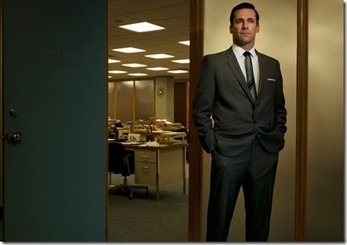

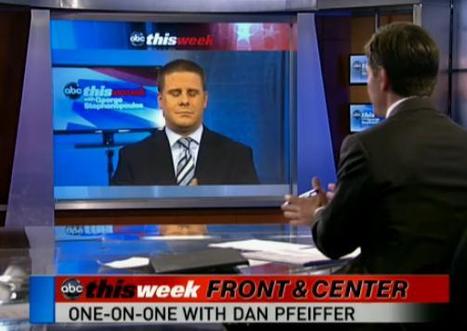






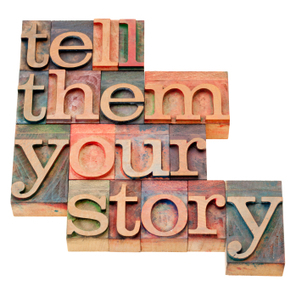



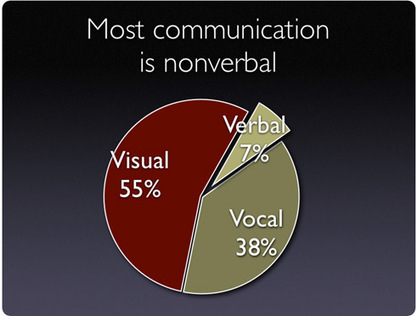

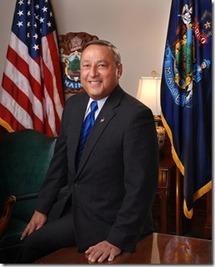






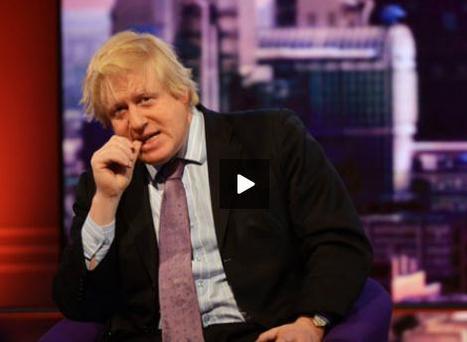

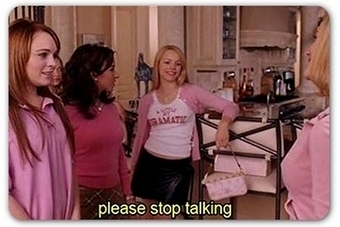






Useful media training tips from Brad Phillips and good case study in how to handle a biased interviewer.